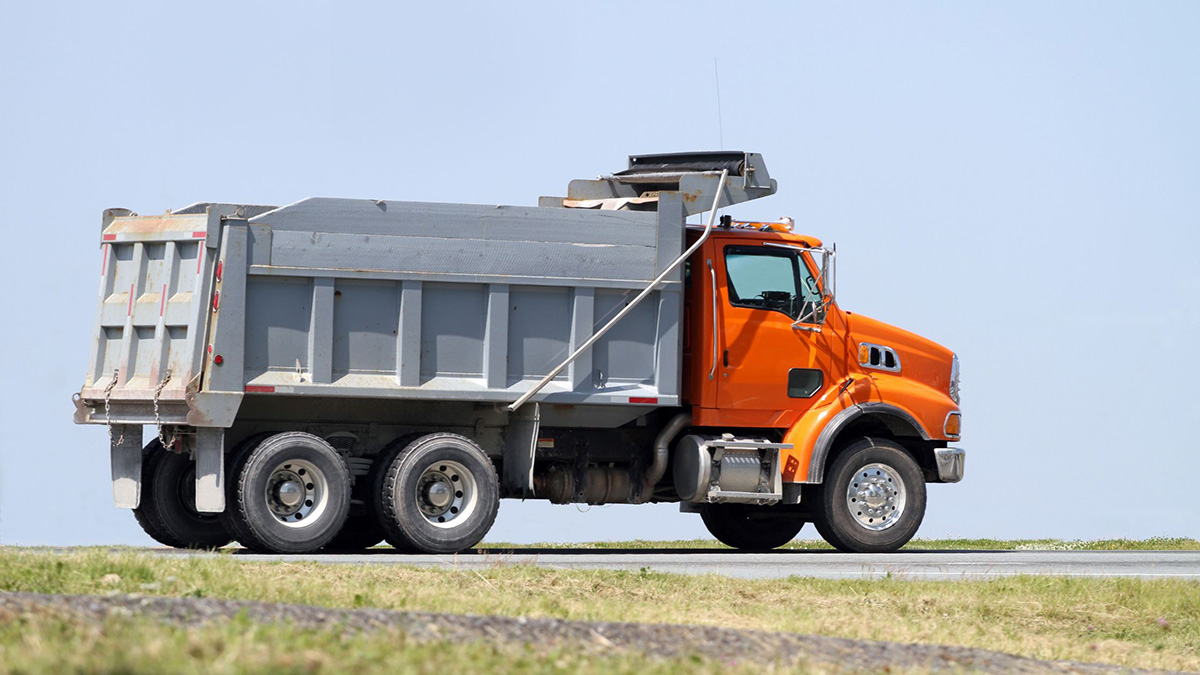

Finance
How Much Is Horse Insurance A Month
Published: November 13, 2023
Find out the cost of horse insurance per month and secure your financial stability. Get a quote today for the best finance options to protect your prized equine companion.
(Many of the links in this article redirect to a specific reviewed product. Your purchase of these products through affiliate links helps to generate commission for LiveWell, at no extra cost. Learn more)
Table of Contents
Introduction
When it comes to owning a horse, there are numerous expenses to consider. From feed and housing to veterinary care and training, the costs can quickly add up. One essential aspect of responsible horse ownership is obtaining horse insurance. Horse insurance provides financial protection in the event of unexpected accidents, illnesses, or injuries to your equine companion.
Many horse owners wonder how much horse insurance costs on a monthly basis. The answer to this question can vary depending on several factors, including the coverage you choose, the value of your horse, and your specific insurance provider.
In this article, we will explore the factors that determine the cost of horse insurance, the different types of coverage available, and the average monthly cost you can expect. We will also provide tips for choosing the best horse insurance policy, ways to lower your premiums, and common exclusions you should be aware of. By the end, you will understand the importance of protecting your horse with insurance and have the knowledge to make an informed decision.
So, let’s delve into the world of horse insurance and find out how much you can expect to pay on a monthly basis to protect your equine partner.
Factors That Determine Horse Insurance Cost
Several factors come into play when determining the cost of horse insurance. Understanding these factors can help you estimate how much you can expect to pay for coverage. Here are some key factors that insurance providers consider:
- Age and Breed: The age and breed of your horse can significantly impact the insurance cost. Generally, younger horses and those with breeds prone to health issues may have higher premiums because they are considered to be at a higher risk of illness or injury.
- Value of the Horse: The value of your horse also influences the insurance cost. More expensive horses require higher coverage limits, which can result in higher premiums. The value is usually determined by factors such as pedigree, training, performance history, and breed rarity.
- Intended Use of the Horse: The purpose for which you use your horse can affect the insurance cost. Horses used for recreational purposes or as companion animals generally have lower premiums compared to those used for competitive sports, racing, or breeding.
- Geographic Location: The location where your horse is stabled can impact the insurance cost. Areas prone to natural disasters or higher horse theft rates may have higher premiums to account for these risks.
- Past Medical History: Your horse’s medical history, including any pre-existing conditions, injuries, or surgeries, may affect the insurance cost. If your horse has a history of health issues, the premiums may be higher to cover potential future treatments or complications.
- Deductible and Coverage Limits: The deductible and coverage limits you choose will also influence the cost of horse insurance. Higher deductibles generally result in lower premiums but require you to pay more out-of-pocket in the event of a claim. Similarly, higher coverage limits will result in higher premiums.
It’s important to provide accurate and detailed information about your horse when applying for insurance. This will ensure that you receive an accurate quote based on your specific circumstances.
Now that we’ve looked at the factors that determine horse insurance cost, let’s explore the different types of coverage available to protect your equine companion.
Types of Horse Insurance Coverage
When it comes to horse insurance, there are different types of coverage available to meet the specific needs of horse owners. Here are the main types of horse insurance coverage:
- Mortality Insurance: Mortality insurance provides coverage in the unfortunate event of the death of your horse due to accidents, illness, or natural causes. This coverage typically reimburses you for the insured value of the horse.
- Medical Insurance: Medical insurance, also known as major medical coverage, helps cover the costs of veterinary treatment for accidents, injuries, and illnesses. This coverage can include diagnostic tests, surgeries, medication, and hospitalization expenses, subject to policy limits and deductibles.
- Surgical Insurance: Surgical insurance specifically covers the costs of surgical procedures for your horse. This can include emergency surgeries, routine procedures, and even elective surgeries, depending on the policy. The coverage may include anesthesia, hospitalization, and post-operative care.
- Loss of Use Insurance: Loss of use insurance provides coverage if your horse becomes permanently unable to perform the tasks or disciplines for which it was insured. This coverage can provide compensation for lost value or income potential.
- Liability Insurance: Liability insurance protects horse owners if their horse causes damage, injury, or property damage to a third party. This coverage can help with legal expenses and potential compensation claims.
- Equine Personal Accident Insurance: This type of insurance covers the rider or handler in case of accidents or injuries sustained while working with or riding the horse. It can provide coverage for medical expenses, disability benefits, and even death benefits.
These are some of the primary types of horse insurance coverage available. It’s essential to carefully assess your needs and consider the value of your horse, your budget, and the risks involved to determine the most appropriate coverage for your specific situation.
Now that we have covered the different types of horse insurance coverage, let’s examine the average monthly cost you can expect to pay for horse insurance.
Average Monthly Cost of Horse Insurance
The average monthly cost of horse insurance can vary based on several factors, including your horse’s value, age, intended use, and the type of coverage you select. On average, horse insurance premiums can range from $300 to $1,200 per year, which translates to around $25 to $100 per month.
Keep in mind that these figures are estimates, and the actual cost can be higher or lower depending on your individual circumstances and the insurance provider you choose. Higher-value horses or those engaged in high-risk activities such as racing or eventing may have higher premiums due to the increased likelihood of accidents or injuries. Younger horses or those with a history of medical conditions may also come with higher insurance costs.
It’s important to obtain quotes from multiple insurance providers to compare coverage options and premiums. This allows you to find the best balance between cost and coverage that aligns with your specific needs and budget.
Additionally, different types of coverage will have different costs associated with them. For example, mortality insurance typically costs around 2-4% of the insured value of the horse, while medical insurance can range from 2-5% of the horse’s value or a flat monthly fee.
Remember, the cost of horse insurance is an investment in the protection and well-being of your equine companion. It provides peace of mind knowing that you have financial support if any unexpected accidents, illnesses, or injuries occur.
Now that you have an idea of the average monthly cost of horse insurance, let’s move on to the next section and discuss how to choose the best horse insurance policy for your needs.
How to Choose the Best Horse Insurance Policy
Choosing the best horse insurance policy requires careful consideration of your specific needs and budget. Here are some essential steps to help you make an informed decision:
- Evaluate Your Horse’s Value: Determine the value of your horse based on factors such as breed, training, performance record, and market value. This will help you determine the appropriate coverage limits and insured value for your horse.
- Assess Your Needs: Consider the activities you engage in with your horse and the associated risks. Do you participate in high-risk sports or competitions? Are you looking for coverage for routine veterinary care or only for emergencies? Understanding your needs will help you select the right type and level of coverage.
- Research Insurance Providers: Look for reputable insurance providers with experience in horse insurance. Read reviews, check their financial stability, and review their policy options. Select a provider that offers comprehensive coverage, excellent customer service, and a strong track record.
- Compare Quotes: Collect quotes from multiple providers to compare coverage options and costs. Pay attention to the policy limits, deductibles, and exclusions. Consider the reputation of the insurance provider and the overall value you will receive for the premiums.
- Understand Policy Exclusions: Thoroughly review the policy exclusions to understand what is not covered. Common exclusions may include pre-existing conditions, certain activities or sports, elective procedures, and specific treatments. Make sure the policy aligns with your horse’s specific needs.
- Consider Additional Coverage: Depending on your horse’s circumstances and your preferences, you may want to consider additional coverage options such as loss of use, liability insurance, or equine personal accident coverage. Assess the potential risks and determine if these additional coverages are necessary for your situation.
- Review Policy Terms and Conditions: Carefully read and understand the terms and conditions of the policy before making a final decision. Pay attention to the claims process, renewal terms, cancellation policies, and any other important details.
- Consult with an Insurance Professional: If you are unsure about the various insurance options or need assistance in selecting the best policy, consider consulting with an insurance professional who specializes in equine insurance. They can provide expert guidance tailored to your specific needs and ensure you have adequate coverage.
By following these steps and conducting thorough research, you can choose the best horse insurance policy that offers the right level of coverage and peace of mind for you and your horse.
Now let’s move on to the next section and explore some tips for lowering your horse insurance premiums.
Tips for Lowering Horse Insurance Premiums
While horse insurance is an important investment, there are several strategies you can employ to reduce your premiums and make it more affordable. Here are some tips for lowering your horse insurance premiums:
- Shop Around: Obtain quotes from multiple insurance providers to compare coverage options and premiums. Different providers may offer varying rates and discounts, so it’s essential to explore your options.
- Bundle Policies: Consider bundling your horse insurance with other insurance policies you may already have, such as farm or homeowners insurance. Insurance companies often offer discounts for combining multiple policies.
- Choose Higher Deductibles: Opting for higher deductibles can lower your premiums. However, ensure that the deductible amount is still affordable for you in the event of a claim.
- Maintain a Safe Environment: Create a safe environment for your horse by implementing proper fencing, secure stabling, and regular maintenance. Insurance providers may offer discounts for horses kept in safe and low-risk facilities.
- Invest in Horse Health: Regular veterinary care, proper nutrition, and routine exercise can help minimize the risk of illness or injury. Insurance providers often offer discounts for horses with a clean bill of health.
- Training and Certifications: Participating in horse training programs or obtaining certifications for you and your horse can demonstrate a higher level of competence and responsible horsemanship. Some insurance providers offer discounts for such qualifications.
- Consider Higher Policy Limits: While it may seem counterintuitive, opting for higher policy limits can sometimes result in lower premiums. Insurance companies may offer discounts for higher limits since they have fewer claims to pay out due to the increased coverage.
- Reduce Non-Essential Coverage: Review your policy and eliminate any non-essential coverage options that may not be necessary for your horse’s specific circumstances. This can help reduce your premiums.
- Regularly Review and Update: Review your horse insurance policy periodically and update it as necessary. As your horse’s value, training, or intended use changes, adjust your coverage accordingly to avoid paying for unnecessary coverage.
Remember, while reducing your premiums is important, ensure that you maintain adequate coverage to protect your horse. It’s crucial to strike a balance between affordability and comprehensive insurance coverage.
Now that you have some tips for lowering your horse insurance premiums, let’s discuss some common exclusions in horse insurance policies.
Common Horse Insurance Exclusions
When it comes to horse insurance, it’s crucial to understand the exclusions in your policy. Exclusions are specific circumstances or events for which your insurance coverage will not apply. While the exact exclusions can vary depending on the insurance provider and policy, here are some common exclusions you should be aware of:
- Pre-Existing Conditions: Most horse insurance policies exclude coverage for pre-existing conditions or injuries that occurred prior to the policy’s effective date. It’s important to disclose any known medical conditions during the application process.
- Intentional Acts or Negligence: Insurers typically do not provide coverage for injuries or damages caused by deliberate acts or negligence on the part of the policyholder or those responsible for the horse’s care.
- War or Civil Unrest: Insurance policies usually exclude coverage for injuries or damages resulting from war, acts of terrorism, or civil unrest.
- Racing and High-Risk Activities: Some policies may exclude coverage for injuries sustained during professional racing, rodeo events, or other high-risk activities. Make sure to clarify if your horse is engaged in any such activities.
- Elective Procedures: Certain elective procedures, such as cosmetic surgeries or non-essential treatments, may be excluded from coverage. Be sure to check your policy for any specific procedure exclusions.
- Behavioral Issues: Insurance policies typically do not cover damages or injuries caused by inherent behavioral issues or training-related problems, such as kicking or biting.
- Specific Illnesses or Diseases: Some policies may exclude coverage for specific diseases or illnesses, such as certain types of colic or contagious equine diseases. These exclusions may vary depending on the policy and insurance provider.
- Excessive Wear and Tear: Normal wear and tear, including non-accidental damage to equipment, may not be covered by horse insurance. Coverage typically focuses on accidents, injuries, and illnesses.
- Exclusions for Older Horses: As horses age, some policies may have exclusions or limitations on coverage for certain conditions or treatments, particularly for horses over a certain age. It’s important to review these exclusions when insuring an older horse.
It’s crucial to carefully review your horse insurance policy and understand the specific exclusions. If you have any questions or concerns, consult with your insurance provider or agent to ensure you have a clear understanding of what is covered and what is not.
Now that we’ve discussed common exclusions in horse insurance policies, let’s explore the importance of having horse insurance.
The Importance of Horse Insurance
Having horse insurance is of utmost importance for responsible horse owners. It provides financial protection and peace of mind in the event of unforeseen accidents, illnesses, or injuries to your equine companion. Here are some key reasons why horse insurance is crucial:
- Financial Protection: Horse ownership comes with inherent risks. Accidents, injuries, and illnesses can occur at any time, resulting in expensive veterinary treatments or even the loss of your horse. Horse insurance helps mitigate these financial risks by covering eligible medical expenses and providing reimbursement for the insured value of your horse in the event of its death.
- Prompt and Quality Veterinary Care: With horse insurance, you can provide your horse with the necessary veterinary care without hesitation or financial constraints. This ensures early intervention and prompt treatment, which can make a significant difference in the outcome of injuries or illnesses.
- Protection for High-Value Horses: If you own a valuable horse, whether due to its pedigree, training, or competition success, it’s crucial to protect your investment. Horse insurance can provide coverage for the insured value of your horse, offering financial protection in case of loss, theft, or major medical treatments.
- Liability Coverage: Horse-related activities carry inherent risks not only for the horse but also for third parties, such as riders, handlers, or bystanders. Liability insurance included in horse insurance policies can protect you if your horse causes injury or property damage to others, covering legal expenses and potential compensation claims.
- Peace of Mind: Horse insurance provides peace of mind knowing that you have financial support to provide the necessary care for your horse in times of need. It allows you to focus on your horse’s well-being without worrying about the potential financial burden.
- Compliance with Contracts and Regulations: In some cases, horse insurance is required or highly recommended for participation in certain competitions, events, or boarding facilities. By having horse insurance, you can comply with these contractual obligations and ensure you meet the necessary requirements for participation.
Every horse owner wants the best for their equine companion. Horse insurance is a vital tool in safeguarding their health, well-being, and financial security. It allows you to provide them with the appropriate care without hesitation, knowing that you have the necessary support in place.
Now that we’ve explored the importance of horse insurance, let’s wrap up the article.
Conclusion
Owning a horse is a rewarding experience, but it also comes with responsibilities, including protecting your horse with insurance. Horse insurance provides essential financial protection in the event of accidents, illnesses, or injuries to your equine companion. While the monthly cost of horse insurance can vary based on factors like your horse’s age, value, and intended use, it is a worthwhile investment to ensure the well-being of your horse.
When choosing a horse insurance policy, it is important to carefully consider your horse’s value, assess your specific needs, and research different insurance providers. Comparing quotes, understanding policy exclusions, and seeking professional guidance can help you make an informed decision and find the best coverage for your horse.
Lowering your horse insurance premiums is possible through strategies such as shopping around, bundling policies, choosing higher deductibles, and maintaining a safe environment. However, it’s crucial to strike a balance between affordability and comprehensive coverage to ensure you have adequate financial support when you need it most.
Understanding common exclusions in horse insurance policies is essential for managing expectations and ensuring you have a clear understanding of what is covered and what is not. Take the time to review your policy and ask questions to your insurance provider to avoid any surprises in the event of a claim.
In conclusion, horse insurance is a crucial aspect of responsible horse ownership. It provides financial protection, access to quality veterinary care, and peace of mind. The investment you make in horse insurance will help protect your horse’s well-being, your financial stability, and ensure you can provide the necessary care when unexpected situations arise.
Now that you have a comprehensive understanding of horse insurance, it’s time to take the necessary steps to protect your equine companion. Consult with insurance providers, obtain quotes, and select the best policy that aligns with your horse’s needs and your budget. By doing so, you can ensure a bright and secure future for both you and your beloved horse.














